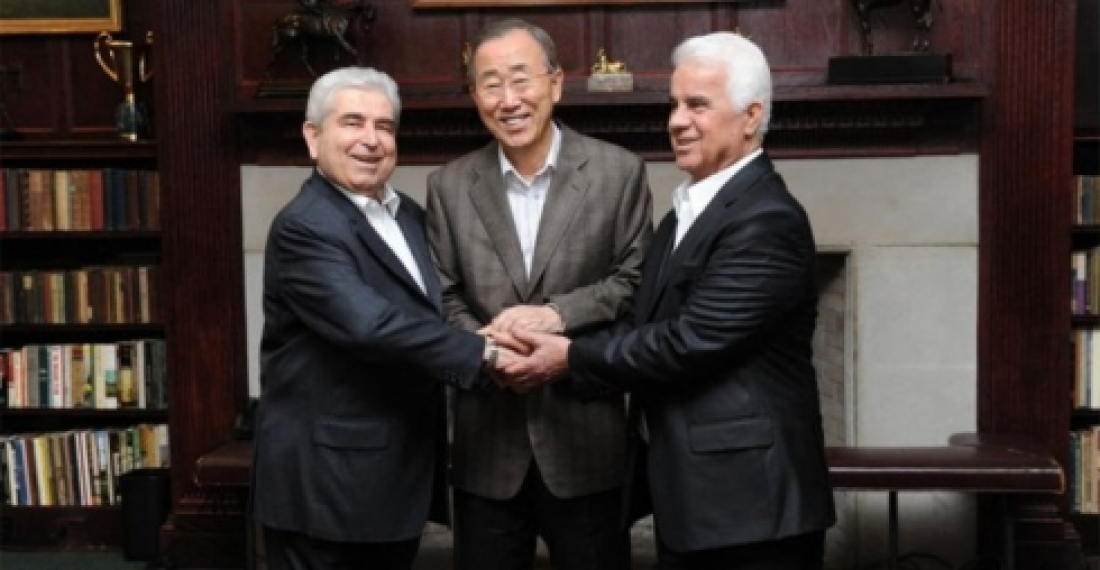The discussions held in New York last week between the Greek Cypriot leader Dimitris Christofias and his Turkish Cypriot counterpart, Dervis Eroglu, under the auspices of UN Secretary General Ban Ki-Moon have given hope that a settlement of the conflict on the divided Island is now within reach. Speaking after the talks the UN Secretary General said he is confident that a comprehensive settlement to the Cyprus issue can be reached. Ban Ki-Moon said that both leaders had assured him that they can finalise a deal.
The leaders met with Mr. Ban outside New York City on 30 and 31 October, the fourth such meeting with the UN chief as part of the ongoing talks aimed at reunifying the Mediterranean island.
At their previous meeting with the Secretary-General in July, it was agreed that the two sides would intensify the talks to reach convergences on outstanding core issues in the negotiations, which include governance and power-sharing, economy, European Union matters, property, territory and security.
Despite the progress made, Mr. Ban acknowledged that “there is still work to be done.” Both leaders have agreed that further efforts are essential over the next two months to move to the “end game of the negotiations,” and he has invited them to meet with him again in a similar format in January next year. “By then, I expect the internal aspects of the Cyprus problem to have been resolved so that we can move to the multilateral conference shortly thereafter,” said Mr. Ban.
The UN-backed talks began in 2008 with the aim of setting up a federal government with a single international personality in a bi-zonal, bi-communal country, with Turkish Cypriot and Greek Cypriot constituent states of equal status.
Commonspace.eu political editor said that a resolution of the Cyprus problem will give an impetus to push forward a settlement of other unresolved conflicts in Europe, namely those in parts of the former Soviet Union. "There are many lessons to be learnt from the Cyprus situation, including mistakes that were made by both sides and by the international community that should not be repeated in the other scenarios. For many years there were those who argued that there could be no settlement to the Cyprus conflict and it was better to freeze things as they were. It seems that these prophets of doom are about to be proven wrong. That perhaps will be the first lesson to be learnt."
Source: commonspace.eu with the Press Service of the United Nations
Photo: Secretary-General Ban Ki-moon with Greek Cypriot leader Dimitris Christofias (left) and Turkish Cypriot leader Dervis Eroglu (right) in Manhasset, New York (picture courtesy of the United Nations)







